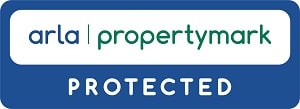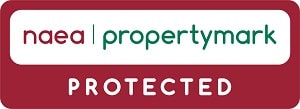![]() Simon was extremely professional and a pleasure to work with in securing a flat in London. Would certainly recommend to all
Simon was extremely professional and a pleasure to work with in securing a flat in London. Would certainly recommend to all
How to find off market properties as a buyer. Plus, for sellers, the advantages and disadvantages of putting your property up for sale off market.

Article written by Simon Jackson, the Managing Director of Fine Living and a property expert with more than 20 years of industry experience. Simon has worked for large corporates as well as boutique agencies – now he brings the best of both worlds to Fine Living. Having lived in London for over two decades too, his knowledge of the property market in the UK capital is second to none.
In this guide I’ll explain everything there is to know about off market properties – investment opportunities that you won’t see advertised publicly.
Why do some sellers choose this approach and how do buyers find the properties? I’ll also explore the pros and cons of selling a property this way.
Sometimes called pocket listings, discreet marketing, secret advertising and so on… The off marketing approach is more common than you might think.
In some parts of London almost 50% of property sales are reportedly off market, according to PropertyData.
So, how does the off market strategy work?
Contents:
- What are off market properties?
- Why do people sell properties off market?
- Who is interested in properties not on the market?
- How to find off market properties
- Advantages and disadvantages
- Final thoughts
What are off market properties?
Usually, when buying a property, you will browse through listings that are publicly available online. For example you might look at the many properties advertised on Rightmove, Zoopla or in the Fine Living portfolio.
Similarly, when selling a property, typically you would ask an estate agent to advertise the property for you. Usually they would list it on the property portals, promote it via email marketing and use several other strategies, as outlined in my guide on how to choose an estate agent (UK).
But you won’t find off market property for sale via a Google search or browsing through the property portals. Estate agents do not publicly advertise off market properties, meaning that most potential buyers will never see their listings.
Yet in most cases, the sellers of these properties are still planning to find a potential buyer at some point, even while they are not on the market.
There are some people who will find out these properties are available to buy though. The estate agent will directly contact a few specific people, known to be looking for such a property, by phone or email.
At first, off market marketing may sound counterintuitive. As a seller, why would you choose to significantly restrict the number of potential buyers that will see your property?
Why do people sell properties off market?
Here are some of the most frequent reasons why some property sellers take the off market approach:
- Confidentiality: Some sellers prefer to keep the potential sale private, with the property not visible online to anyone they know.
- High profile: Similarly, most high net worth individuals (HNWIs), celebrities, politicians etc. selling a property do not want photos of inside their home to appear online
- Private price testing: They may not want to publicise the asking price – in particular, in case this needs to be lowered at a later date.
- Connections: The seller – or their estate agent – may have someone perfect in mind for the property and think it would be simpler to approach them first.
- Fewer viewings: A particularly popular property could get a lot of interest on the open market, leading to many viewing requests. Off market marketing lets you pre-select the interested parties and an interested buyer may even pay a premium to secure the property while it remains ‘hidden’ off market.
- No deadline or rush to move: If time is on the seller’s side, they may take a ‘wait and see’ stance with off market advertising. If someone makes them a tempting offer, they’ll consider it, but otherwise they are in no rush to move.
- Testing the market: Lastly, some sellers want to privately gauge interest in their property before marketing it publicly. Essentially, they use off market advertising as a ‘pre-marketing’ trial exercise before potentially going public with the listing at a later date.
That’s the range of logic for different sellers. Now let’s take a look at the potential buyers of different off market properties.
Who is interested in properties not on the market?
Some buyers actively seek out off market properties, for various reasons including the following:
- Less competition: Their high priority is to avoid feeling the need to make hasty offers, get into a bidding process or be part of a potentially lengthy buying process.
- Confidentiality: Just as some sellers value privacy higher than the chance to reach the biggest audience, many buyers also want to be discreet.
In short, off market property buyers are interested in the exclusivity that comes with seeing a house or apartment that the wider market does not (yet) know is for sale.
Sometimes a property in need of renovation is available off market. The pictures might not look good on publicly available online listings, so a more discreet off market approach targeting only the most interested investors may be a better option.
In some cases, they may be prepared to pay a premium to secure the property while it is off market. But in others, they may hope that by making an early offer, they can tempt a seller to accept quickly to avoid putting the property on the open market.
How to find off market properties
Naturally, it is not straightforward to find such properties. If they were discoverable by the wider public, then they wouldn’t count as genuine off market listings.
So – how do buyers find out about off market properties? Options include:
-
- Sharing their requirements and preferences with a trusted estate agent: Then when a property meeting this criteria becomes available, and the seller prefers an off market approach, the estate agent may share the listing privately with the interested buyer.
- Word of mouth: Off market buyers build a network over time and ask their contacts in confidence about anyone they know planning to sell a property meeting their criteria.
- Direct approaches: They may also contact property developers, investment companies and landlords with large portfolios to find an off market opportunity.
- Using a buying agent: Buying agents find properties for their clients and often have the contacts needed to learn about any new off market properties.
For more details on how to start building a UK portfolio, take a look at my London property investment guide.
Advantages and disadvantages
Earlier in this article I mentioned the different reasons why sellers choose an off market approach. They might prioritise confidentiality, for example.
But regardless of individual preferences, what are the practical gains of using an off vs. on market strategy to sell your property?
Advantages
- More control over the process: You can restrict who finds out about the property and get more detailed profiles of interested buyers before inviting them to viewings.
- Speed (1/2): If the off market strategy is a success, you could accurately target and secure the perfect buyer quickly, without screening lots of other interested parties.
There is a potential disadvantage in terms of speed too though. To wrap up, here are the potential pitfalls of choosing an off market strategy when it’s not the right approach for your property.
Disadvantages
- Less exposure: If there aren’t any private contacts who are interested in the property or make an offer, it suggests the property needs an on market approach for more exposure.
- Speed (2/2): If you commit to the off market approach but it takes a while to find interested buyers, then conversely, the selling process may take longer than it would via public listings.
- Less valuation feedback: It helps to be confident about your valuation in this scenario. Without competitive bidding, there is a risk of accepting a lower offer than ones you might receive on the open market.
Similarly, there is a risk of overpricing your property but without feedback from the wider market to correct your judgement quickly.
Final thoughts: Off market properties
If you’re looking to buy a property but have been frustrated in your search so far, talk to an experienced, trusted estate agent about what you’re looking for. You never know, they may have an exclusive, off market property that’s just right for you.
Continue to do some due diligence when viewing any off market properties. Here are 16 questions to ask when viewing a house or apartment.
As a property seller, there are plenty of considerations to factor in when deciding how to market your property.
The most common approach is to advertise it on the open market, but I hope my guide has helped you see the pros and cons of this alternative approach.
Once you have accepted an offer, the rest of the sale process remains the same. Find out what can hold up the exchange of contracts to plan ahead.
Also, take a look at the Fine Living blog for other helpful guides. Recently we explored the role of the process agent for property buyers based overseas.
Whether you’re buying or selling a property, Fine Living is here for you! Please don’t hesitate to get in touch with any queries.
Want to discuss the advice on this blog - or anything else?










